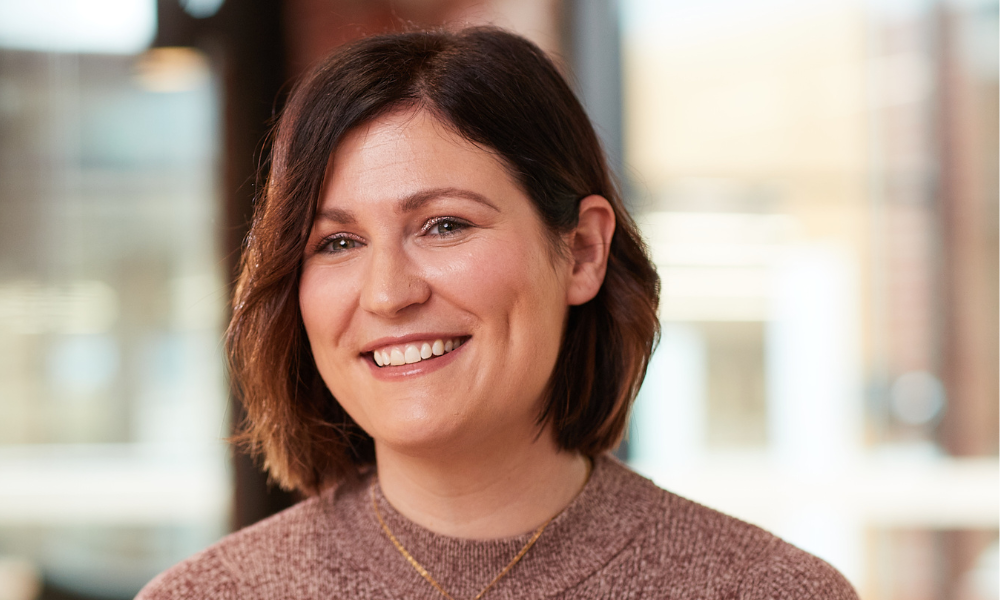
Head of People at Australian Lifeblood discusses DEI and AI saving lives

In a world of everchanging beliefs, political structures, and diversity, equality and inclusion (DEI) initiatives, the Executive Director of People and Culture at Australian Lifeblood says inclusion is a cornerstone to a successfully functioning working environment.
“I have always taken roles where I can play a part in driving DEI forward for an organization – and it’s probably why I’ve been so successful,” said Shelley Abrams.
“I'm a big believer in culture and how we change, how we can influence and change cultures at a systems level. People that work with me would probably say I empower them and create a safe space to thrive."
Abrams emphasised she has no interest in doing people’s jobs for them, as she knows her team can do it “better” than her – creating a space where people feel they can be their authentic self.
“I believe that everyone has the right to great work experiences, to be able to be their whole self and be able to bring their whole self to work and not feel that they need to hide,” Abrams added.
Abrams recalled her passion for DEI sprouting in childhood, telling HRD she had an incredibly inclusive family life.
“I grew up in a large family - I'm one of six kids. Three are adopted. I have a sister from South Korea, a brother from the Philippines, and a sister from West Africa. One of my brothers also came out as gay very young age, so we've got a very diverse family.”
“We grew up together as a bit of a team, and I always enjoyed the dynamics of teams and how people come together, the politics and how it all plays out,” she added.
It was this, Abrams explained, that encouraged her to go down the route of business – completing both a bachelor's degree and master's from Griffith University and the University of Melbourne, respectively.
Since moving to Dubai at the age of 20 to become a nanny, Abrams has worked for RP International, PwC and Coles Group – before moving into the health space with roles at Medibank and, now, Australian Lifeblood.
Throughout her impressive career, spanning over 15 years, there’s only been one thing Abrams has focused on – allowing people to be heard and represented in the workplace.
“I did some training years ago where we had to describe our weekends without using gendered pronouns—it was incredibly hard. The effort it took to hide who you are really stuck with me. I never wanted anyone on my team to feel they need to do that. It’s non-negotiable”
With DEI initiatives being discontinued around the world following the inauguration of President Donald Trump, there are calls for measures to expand – according to data from MyPerfectResume.
"The survey shows that employees overwhelmingly support expanding DEI initiatives," the report read. "Despite political pressures and corporate hesitations, robust DEI efforts are seen as vital to maintaining a positive workplace culture, retaining talent, and fostering long-term business success."
DEI initiatives are also important when working in the healthcare sector, Abrams told HRD, especially when serving to represent the Australian community.
“We must have a diverse donor panel. There's so much that the need for diverse blood and blood products is incredible, because blood can be very individual.”
“We've got people that are on the production line, in the manufacturing labs, through to really highly skilled top of the game scientists that are matching organs with donors. One of the opportunities that we have, I think, is, how do we create work experiences that meet the needs of that incredibly diverse cohort of employees?” she added.
Another opportunity within the sector is the use of AI to accelerate the potentially lifesaving work Abrams helps to facilitate.
“Recently, our research team shared an AI tool they developed to analyse red cell counts in infant blood transfusions. What once took 15 minutes now takes five, with researchers still validating results to keep that human element in the process because mistakes cannot be made under any circumstances. It’s a great example of AI’s impact—just like how we’re using tools like Copilot to streamline HR support and employee communications.”